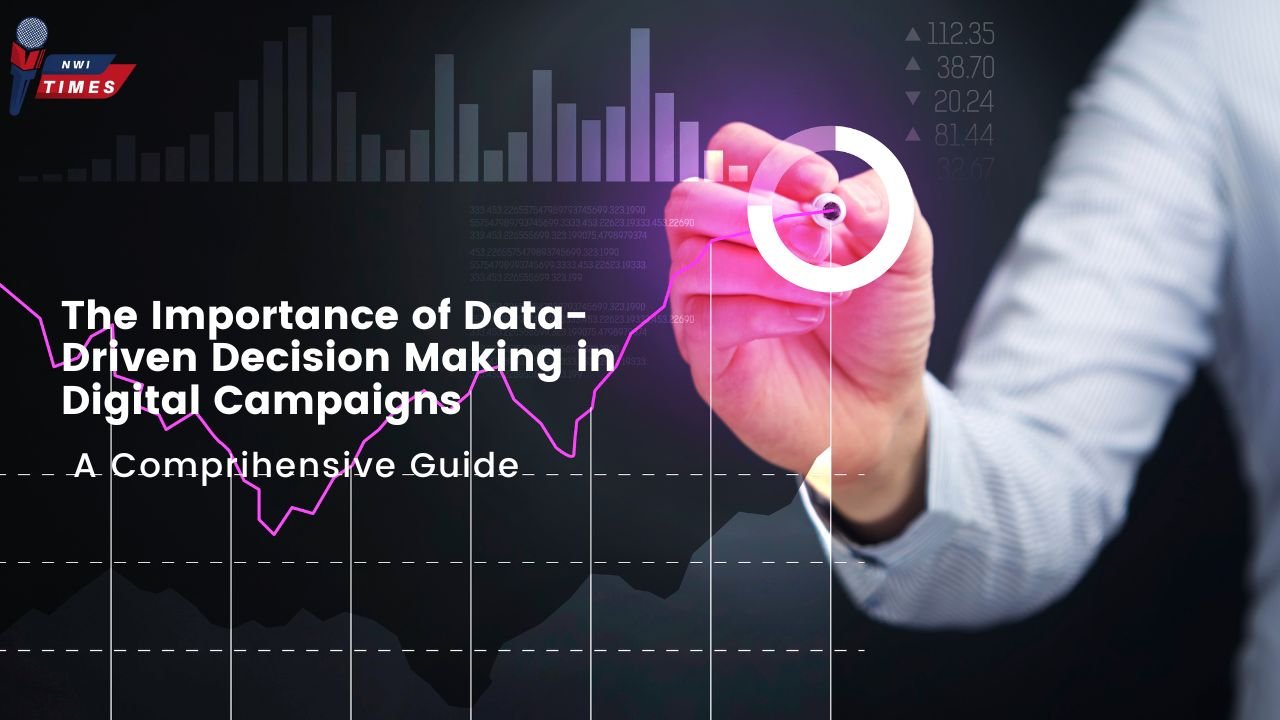Data-driven decision making is when companies use information from data to help them make choices. Instead of guessing, they look at facts and numbers to see what works best. This approach is important in digital marketing campaigns, where businesses want to reach the right people online. By looking at data from past campaigns, companies can learn what ads worked, what didn’t, and how to do better next time.
Using this method helps businesses make smarter choices and spend their money wisely. The phrase “The Importance of Data-Driven Decision Making in Digital Campaigns” means that businesses can improve their chances of success by using real information, rather than just trusting their instincts.
How isf Data Collected for Digital Campaigns?
Data for digital campaigns comes from many places. Websites, social media platforms, and search engines all collect information about what users do online. Companies can gather data through cookies, surveys, and even by tracking how users interact with their ads. When someone clicks on an ad, that action is recorded and becomes part of the data pool.
Collecting this data is important because it helps marketers understand who is interacting with their ads and how. The Importance of Data-Driven Decision Making in Digital Campaigns is that it allows businesses to see real-time feedback and adjust their strategies. This helps them create more personalized content and target the right audience more accurately.
How Does Data-Driven Decision Making Improve Campaign Performance?
Data-driven decision making helps companies improve their digital campaigns by showing what’s working and what isn’t. For example, a business may run two different ads and compare how they perform. By looking at data such as click-through rates or engagement, they can see which ad is more successful.
This process saves money by avoiding strategies that don’t work. The phrase “The Importance of Data-Driven Decision Making in Digital Campaigns” is key here. By relying on data, businesses make choices that lead to better performance and greater returns on investment. It’s like following a map to reach a destination without taking unnecessary detours.
What Role Do Analytics Tools Play in Data-Driven Decision Making?
Analytics tools help businesses collect and understand data from their digital campaigns. Platforms like Google Analytics, Facebook Insights, and other marketing tools provide detailed reports on what users are doing. These tools track how many people see an ad, click on it, or even make a purchase afterward.
The Importance of Data-Driven Decision Making in Digital Campaigns becomes clearer when these tools are used effectively. They give businesses a clear picture of their audience’s behavior and preferences. Marketers can adjust their campaigns based on these insights, leading to better results. Analytics tools make it easy to see patterns and trends, helping businesses make informed decisions.
How Can Data Be Used to Target the Right Audience?
One of the biggest benefits of data-driven decision making is that it helps companies target the right people. Businesses can use data to figure out who is most interested in their products. This includes information like age, location, gender, and even past behavior.
With this knowledge, companies can show ads only to those who are likely to buy, increasing the chances of success. The Importance of Data-Driven Decision Making in Digital Campaigns is clear in this process. By focusing on specific groups, companies avoid wasting time and money on ads that won’t reach the right audience. It’s about sending the right message to the right person at the right time.
How Does Data-Driven Decision Making Help with Budget Allocation?
Budgeting for digital campaigns can be tricky, but data helps make it easier. When businesses see how much each ad costs and how much revenue it brings in, they can decide where to spend more money and where to cut back. For example, if one type of ad brings in a lot of sales but another doesn’t, businesses can shift their budget to the more successful ad.
The Importance of Data-Driven Decision Making in Digital Campaigns is important here because it prevents companies from overspending. They can use data to ensure their money is going to the most effective strategies, maximizing their return on investment.
What Are the Benefits of A/B Testing in Digital Campaigns?
A/B testing is when companies test two different versions of something to see which one performs better. This could be two versions of an ad, a website design, or an email. By comparing the results, businesses can choose the one that works best.
The Importance of Data-Driven Decision Making in Digital Campaigns is shown in A/B testing because it helps companies improve their efforts over time. Instead of guessing, they rely on real information to make decisions. A/B testing also helps companies find new strategies that they might not have thought of before, leading to better results overall.
How Can Data Help with Measuring Success?
Measuring success in a digital campaign is all about looking at the right data. Companies need to know if their ads are reaching their goals, whether that’s getting more clicks, sales, or website visits. Data-driven decision making helps track these goals and see how close a business is to meeting them.
The Importance of Data-Driven Decision Making in Digital Campaigns is that it allows businesses to measure success in a clear and accurate way. By setting goals and tracking the right metrics, companies can understand their progress and adjust their strategies if needed.
Table: Benefits of Data-Driven Decision Making in Digital Campaigns
| Benefits | Explanation |
| Better Targeting | Data helps businesses focus on the right audience for their ads. |
| Improved Campaign Performance | Campaigns are adjusted based on real-time data, leading to better results. |
| More Efficient Budgeting | Money is spent on strategies that work, reducing wasted spending. |
| Informed Decision Making | Businesses use facts and figures to make choices, not just guesses. |
| Accurate Measurement of Success | Data helps track goals and measure how well campaigns are doing. |
| Higher Return on Investment (ROI) | Data ensures that marketing efforts lead to greater profits. |
How Does Data-Driven Decision Making Reduce Risk in Campaigns?
Data-driven decision making reduces the risk of failure in digital campaigns. When businesses rely on data, they avoid making costly mistakes. For example, data can show which strategies didn’t work in the past, helping companies avoid repeating them.
The Importance of Data-Driven Decision Making in Digital Campaigns is that it helps reduce the guesswork. This process reduces the risk of losing money on ineffective strategies and increases the chances of success. By basing decisions on real information, businesses can approach campaigns with more confidence.
What Challenges Can Companies Face in Data-Driven Decision Making?
Even though data-driven decision making has many benefits, it can also be challenging. One common problem is dealing with too much data, which can make it hard to know what’s important. Another challenge is making sure the data is accurate. If businesses rely on incorrect data, they could make bad decisions.
The Importance of Data-Driven Decision Making in Digital Campaigns depends on having the right data and knowing how to use it. Companies need to invest in good tools and make sure they understand their data before making decisions. When done right, data-driven strategies lead to greater success in digital campaigns.
Final Thoughts on the Importance of Data-Driven Decision Making in Digital Campaigns
Data-driven decision making is one of the best ways to improve the success of digital campaigns. By using information from past efforts, businesses can make smart choices about how to spend their budget, who to target, and which strategies work best. The phrase “The Importance of Data-Driven Decision Making in Digital Campaigns” captures the value of this approach. It helps businesses reduce risks, measure success, and improve their performance in the fast-changing world of online marketing.
By focusing on data, companies can create more effective campaigns that reach their goals and provide a better return on investment.



